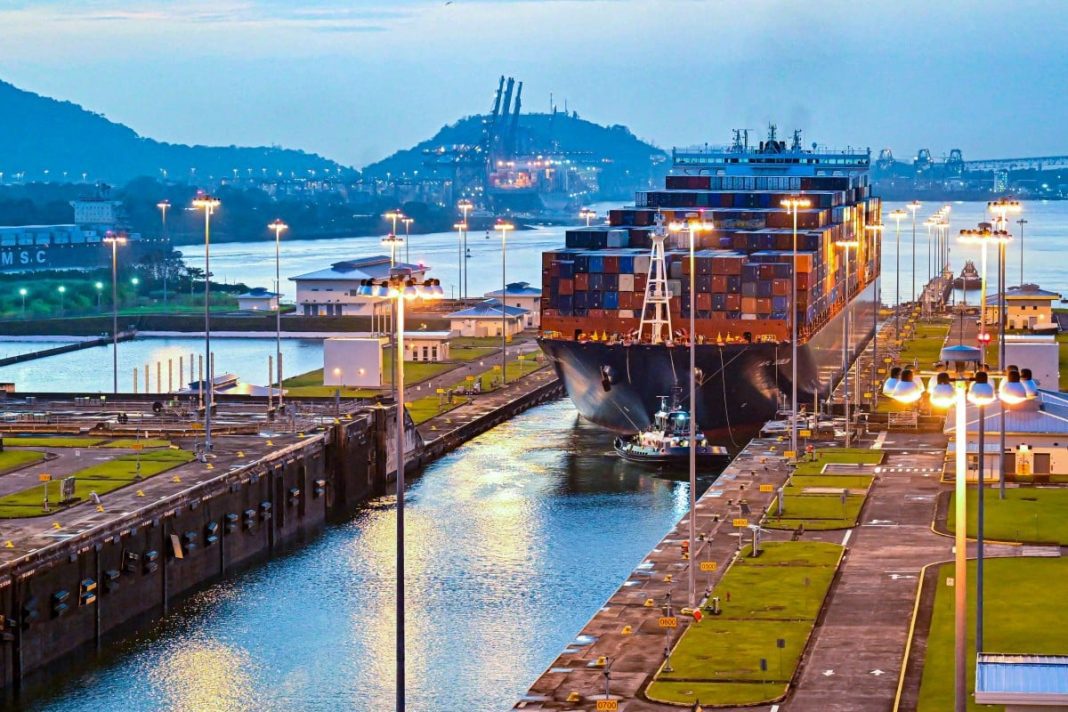Panama’s Attorney General Luis Carlos Gomez has confirmed that the government has taken over 160 legal and investigative actions. These investigations pertain to two major ports on the Panama Canal. The ports are run by Panama Ports Company, a business owned by CK Hutchison Holdings, which is based in Hong Kong.
This investigation comes at a time when tensions are rising between the United States and China over influence in the region. The Panama Canal, a critical route for global trade, is now at the center of this international power struggle.
Officials say the case involves possible irregularities or wrongdoing at the ports, and the situation is being closely watched around the world.
“This is not a routine case,” stated Gomez, emphasizing that the case is being handled by the office’s anti-corruption unit for high-complexity matters, a division typically reserved for large-scale financial or institutional misconduct.
According to officials, the probe follows a forensic audit by the Comptroller General’s Office, launched in February 2025. While exact details of the alleged wrongdoing remain under wraps, investigators are conducting interviews, issuing special information requests, and deploying commissions to verify whether any violations uncovered during the audit rise to the level of criminal conduct.
The allegations are unfolding as the United States increasingly voices concern over Chinese involvement in key infrastructure near the canal, widely seen as a chokepoint of global commerce and a strategic asset in the Indo-Pacific power balance.
Strategic Geography in the Spotlight
The two ports in question—Balboa and Cristóbal—are operated by Panama Ports Company under a long-term concession. These facilities sit at both ends of the Panama Canal, one of the world’s most vital trade arteries. With approximately 5% of global trade passing through its locks annually, control over canal access and logistics is considered a matter of strategic leverage.
Trump’s White House Ordered Pentagon to Develop Military Options for Panama Canal
In his January 2025 inaugural address, U.S. President Donald Trump accused Panama of violating the longstanding neutrality treaty governing the canal by allowing companies with links to Beijing to expand their footprint. He declared that the United States would be “taking back” its influence over the canal region—language that triggered sharp diplomatic responses from Panama City.
That rhetoric was echoed in February by U.S. Secretary of State Marco Rubio, who issued a warning to Panamanian President Jose Raul Mulino, stating that Washington would take “necessary measures” if Chinese commercial interests were not curtailed in the canal zone.
Shortly after, Admiral Alvin Holsey, Commander of the United States Southern Command (USSOUTHCOM), traveled to Panama to discuss “protecting” the canal from what U.S. officials have framed as covert influence by the Chinese Communist Party via state-owned enterprises.
China’s Expanding Footprint—and Strategic Ambiguity
Although China does not control or operate the Panama Canal itself, it has steadily expanded its commercial footprint in the country. In 2021, Panama Ports Company renewed its concession to manage the twin ports flanking the canal, and other Chinese firms have won contracts for roadways, logistics zones, and energy infrastructure in surrounding areas.
On Monday, CK Hutchison confirmed that it would seek to introduce a mainland Chinese investor into a global port asset deal worth an estimated US$23 billion. Media reports suggest that China’s state-owned COSCO Shipping has expressed interest in joining the consortium. However, critically, the deal excludes the two Panama terminals, likely in an effort to mitigate diplomatic escalation with Washington.
🚢 Under pressure from Beijing, Hutchison adds Chinese buyer to rescue $23B Panama port sale
The 145-day exclusivity window for negotiations with the consortium—led by Terminal Investment Limited, affiliated with Mediterranean Shipping Company, and U.S.-based BlackRock—expired on Sunday. CK Hutchison has stated that structural changes to the deal are ongoing to satisfy regulatory scrutiny in various jurisdictions.
Panama Pushes Back
Panamanian President Jose Raul Mulino has dismissed American warnings as alarmist and politically motivated. During a press conference, he asserted that the canal remains under “full Panamanian control” and that allegations of foreign interference are being exaggerated for geopolitical posturing.
Meanwhile, the Chinese Embassy in Panama released a public statement following a meeting between Ambassador Xu Xueyuan and Canal Administrator Ricaurte Vasquez Morales, reaffirming China’s support for the canal’s “permanent neutrality.” The statement emphasized that the People’s Republic of China has never participated in the canal’s operation or management, calling U.S. accusations “malicious and baseless.”
High-Stakes Oversight and Global Ramifications
From a defense and strategic infrastructure standpoint, the current situation is emblematic of a broader global pattern: China’s commercial expansion strategy—often described as “influence by infrastructure”—intersects with U.S. national security red lines. The Panama Canal, much like key chokepoints in the South China Sea or Djibouti, is increasingly being viewed through a dual lens—as both a commercial artery and a geopolitical asset.
The Panama Ports investigation—if proven to involve misconduct or foreign pressure—could reshape how countries manage critical infrastructure in contested spaces. It also raises important compliance questions for multinational firms operating in overlapping legal regimes, such as U.S. sanctions frameworks, Panama’s sovereignty laws, and Chinese investment policies.
For now, Panama’s anti-corruption authorities continue their sweeping probe, as the world watches closely. The outcome will not only affect port operations—but could influence how the U.S. and China calibrate their next moves in the global contest for maritime control.

